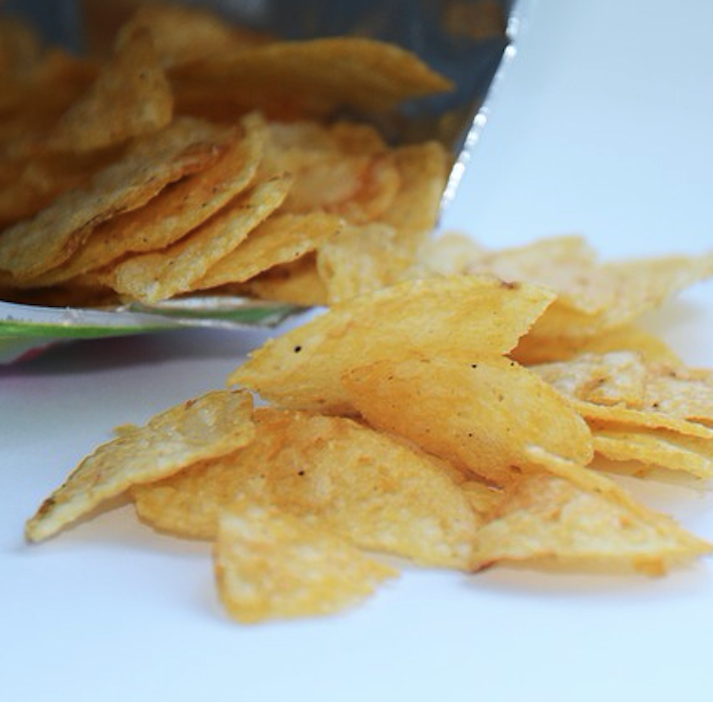
During the past decades, ultra-processed food has increasingly displaced unprocessed and freshly prepared meals in our diet. This change has taken place in both high and low-income countries, contributing up to 60% of our energy intake [1][2]. Does this major change in diet impact our health, and ADHD in particular? In this blog, I will show you that the current evidence is not yet very consistent, with some studies saying yes and others no. But first, I will explain what ultra-processed food is.
What is ultra-processed food?
Ultra-processed food is based mostly or entirely on substances derived from food and additives, with little or no whole and intact food included [2][3][4]. Examples of ingredients derived from food are oil, fats, sugar, and starch. Other common ingredients are preservatives such as stabilizers, emulsifiers, sweeteners, colours, and flavours. Typically, the amounts of total fat, saturated fat, added sugars, and salt are high, and the amount of fiber is low compared to unprocessed foods [5].
Examples of ultra-processed food include snacks such as mass-manufactured chips, buns, and cookies; reconstituted meat and poultry products such as sausages and nuggets; and many pre-packaged meals. Characteristically, such food is micro-biologically safe, durable, convenient, highly palatable, and cheap.
Associations between high consumption of ultra-processed food and ADHD
High consumption of ultra-processed food has been associated with an increased risk of all-cause mortality, obesity, and depression [2]. However, the possible impact of eating a high amount of ultra-processed food on physical diseases and mental health is scarcely studied. When it comes to ADHD, the results have so far been inconsistent.
Evidence supporting the notion that eating ultra-processed food being associated with ADHD comes from a recent meta-analysis. This is a study that combines data from multiple published studies. This meta-analysis showed that ADHD was associated with an unhealthy eating pattern. In this study, ultra-processed food and “junk food” were included in the definition of an unhealthy eating pattern [6].
However, a recently published study showed no link between the amount of ultra-processed food the mother ate during pregnancy, and the risk of her child having ADHD [7]. This study was based on data from the large population-based longitudinal Norwegian Mother, Father, and Child Cohort Study (MoBa), and 46,976 mothers participated.
Maternal diet was assessed using a food-frequency questionnaire around week 22 in pregnancy, covering 255 foods and beverages. The relative contribution of energy from ultra-processed food compared to total energy was calculated, and ADHD diagnoses in the children were collected from a national patient registry. The results showed no increased risk of ADHD diagnoses in children of mothers with a high intake of ultra-processed food compared to those with lesser intake. Thus, the results from this large study were not in line with the results from the meta-analysis.
Knowledge of the potential influences that ultra-processed food may have on ADHD is important, as it may have consequences for ADHD prevention or treatment. Nevertheless, as studies covering this relationship are scarce with inconsistent findings, it is clear that there is a need for further research on this topic.
Visit our other blogs for more information on diet and ADHD:
How does ADHD relate to unhealthy dietary habits? –The role of “Food addiction” by Lin Li and Henrik Larsson https://newbrainnutrition.com/how-does-adhd-relate-to-unhealthy-dietary-habits-the-role-of-food-addiction/
Continued micronutrient treatment associated with long-term ADHD symptom improvements by Julia Rucklidge https://newbrainnutrition.com/continued-micronutrient-treatment-associated-with-long-term-adhd-symptom-improvements/
Food choices and ADHD by Karina Rosales Ortiz and Josep Antoni Ramos-Quiroga
https://newbrainnutrition.com/food-choices-and-adhd/
References:
1. Baraldi LG, Martinez Steele E, Canella DS, Monteiro CA. Consumption of ultra-processed foods and associated sociodemographic factors in the USA between 2007 and 2012: evidence from a nationally representative cross-sectional study. BMJ Open. 2018;8(3):e020574. doi:https://bmjopen.bmj.com/content/bmjopen/8/3/e020574.full.pdf.
2. Chen X, Zhang Z, Yang H, et al. Consumption of ultra-processed foods and health outcomes: a systematic review of epidemiological studies. Nutrition journal. 2020;19(1):1-10. doi:https://nutritionj.biomedcentral.com/track/pdf/10.1186/s12937-020-00604-1.pdf.
3. Food and Agriculture Organization of the United Nations (FAO). Guidelines on the collection of information on food processing through food consumption surveys (pp. 30-32). FAO, Rome. 2015:30-32. doi:http://www.fao.org/3/i4690e/i4690e.pdf.
4. Monteiro CA, Levy RB, Claro RM, Castro IRRd, Cannon G. A new classification of foods based on the extent and purpose of their processing. Cadernos de saude publica. 2010;26(11):2039-2049. http://www.scielo.br/pdf/csp/v26n11/05.pdf
5. Blanco-Rojo R, Sandoval-Insausti H, López-Garcia E, et al. Consumption of Ultra-Processed Foods and Mortality: A National Prospective Cohort in Spain. Mayo Clin Proc. 2019;94(11):2178-2188. doi:https://www.sciencedirect.com/science/article/pii/S0025619619304185. Accessed Nov.
6. Del-Ponte B, Quinte GC, Cruz S, Grellert M, Santos IS. Dietary patterns and attention deficit/hyperactivity disorder (ADHD): a systematic review and meta-analysis. Journal of affective disorders. 2019;252:160-173. doi:https://www.sciencedirect.com/science/article/pii/S0165032718329720.
7. Borge TC, Biele G, Papadopoulou E, et al. The associations between maternal and child diet quality and child ADHD – findings from a large Norwegian pregnancy cohort study. BMC Psychiatry. 2021;21(1):139. doi:https://bmcpsychiatry.biomedcentral.com/articles/10.1186/s12888-021-03130-4.
